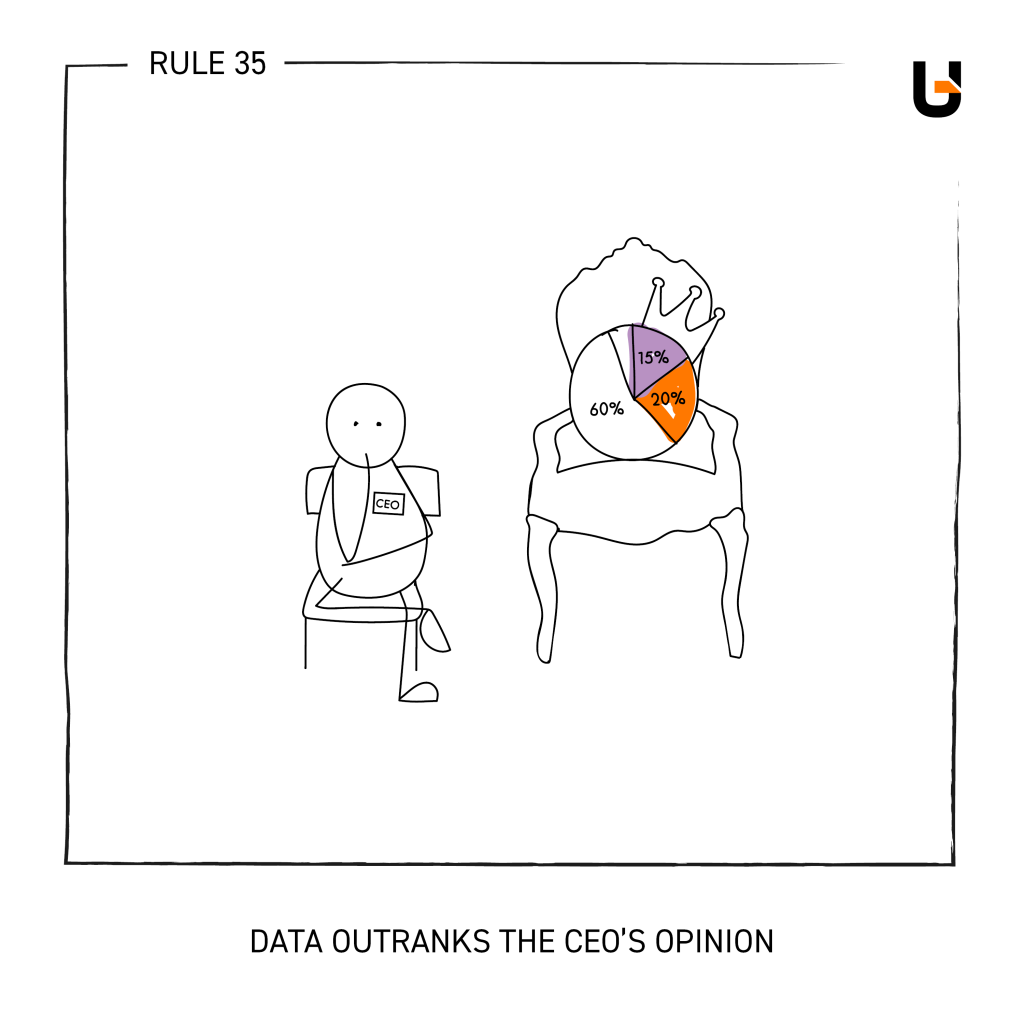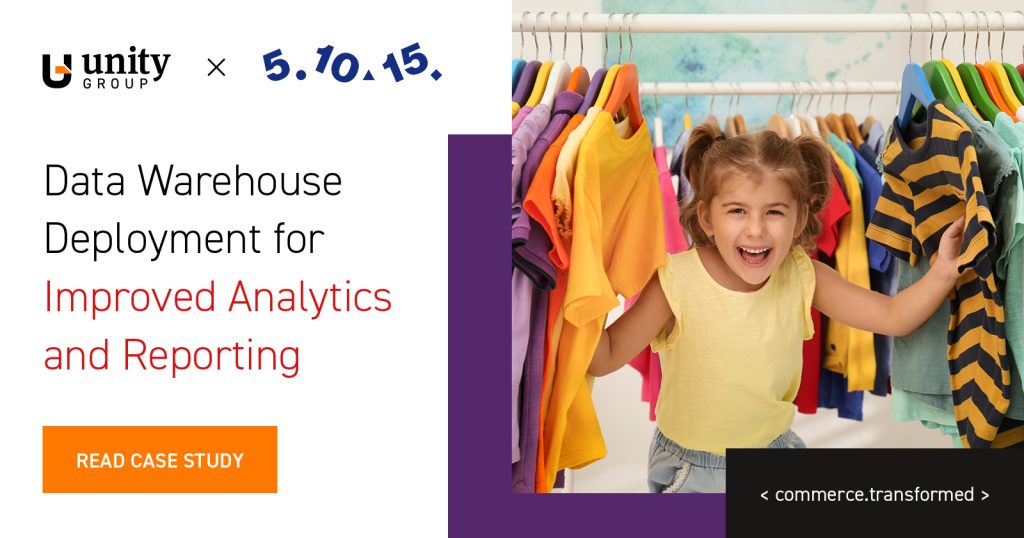The Growing Impact of Data Governance and Data Quality for Business
Never build on weak foundations – a good sentiment for building buildings and business processes alike. Today, everyone is looking to build on their data, but how do we ensure data quality?
In the past, when data tools were simple, data quality was less of an issue. However, the recent growth of advanced data tools, such as business intelligence, big data and even AI, have all led businesses to ensure data quality is a top priority.
So, in order to improve data quality and implement bigger and better operations, companies of all sizes are looking to data governance practices. And while this may seem daunting, it’s a worthwhile step to take to eliminate poor data quality and ensure the best data-driven insights.
In this guide, we want to introduce you to data governance, its key benefits and advantages, and how to implement it in businesses of any size, scale or industry. By the end, you’ll have a much stronger understanding of the correlation of data quality and data governance, and the necessity for both.
What is Data Governance?
Data governance is a collection of practices, processes and policies that organizations can deploy to securely manage their data assets. Collectively, these aspects define data owners, ensure data is protected both internally and externally, and help in ensuring data quality throughout the company.

How Do We Define Data Quality?
The term data quality focuses on the metrics and values of the data itself. Companies secure data quality to ensure its usefulness as a source of insights.
Data Quality vs Data Governance vs Data Management
For businesses just starting on their data governance initiatives, we understand there can be a lot of confusion between data management, data quality and data governance. The best way to describe the key differences is:
- Data Quality focuses on just the aspects of the data itself to ensure it is formatted, compatible and reliable.
- Data Management focuses on the internal data policies, both technical and operational, to handle, store and secure data throughout its lifecycle.
- A Data Governance program, on the other hand, is a wider term that overlaps both data quality and data management.
For example, proper Data Governance focuses on a wide range of both data management and data quality metrics:
- Accuracy: How accurately a given dataset represents its real-world values.
- Completeness: If the dataset has all necessary data items, or if some elements are missing.
- Reliability: The consistent accuracy and completeness of data sources over repeated measurements and use cases.
- Relevance: If the data is applicable for the intended purposes and uses.
- Security: How safe is the data? Is it fully disposed of at the end of the data lifecycle?
- Access: Who can access, edit or otherwise interact with data? Are roles and permissions limited to only necessary data access?
- Storage: Where is the data stored? Are there duplicate copies that could lead to data errors?
- Data stewards: Who is responsible for data in the company? Who ensures the previous criteria are being effectively managed throughout the organization?
In other words, data quality and data governance are closely related, but the latter is a larger methodology that also includes data management concerns.

Why Data Governance Practices Matter More Than Ever
There are a number of reasons why data governance matters more than ever. Not least of all, the growing use of data throughout organizations means that greater care is necessary. More operations and decisions rely on high quality data, so who is responsible for ensuring these data quality standards?
However, that’s not all, as we also need to consider a range of organizational, operational and regulatory matters.
GDPR and wider Data Privacy Regulations
All companies have to be compliant with GDPR, but sectors such as Healthcare also have their own, specific data privacy regulations, such as HIPAA. Consequently, the need for data stewardship is greater: someone has to be responsible for not only data security, but ensuring its used compliantly and only in the necessary areas.
As needs grow, a single Data Compliance Officer might not be enough. Data governance is framework to support such people in these needs, as well as implement a greater sense of data ownership throughout.
Operational Efficiency
From saving money or identifying new opportunities, data analytics can lead to many operational improvements. In order to do that, companies need to ensure accurate data usage.

Again, data governance plays a key role here thanks to data stewards – roles that ensure the accuracy of collected data. Such roles not only improve data quality, but ensure it stays up-to-date and is used consistently across all applicable business areas.
AI, Machine Learning and Advanced Data Tools
Many business operations can be improved with the likes of AI, but all smart systems are built on data sets. If this data is not accurate, the resulting business processes are impacted as a result. Likewise, if such tools use outdated master data, then they are not in sync with the wider business or pace of operations.

As the need for AI ethics, especially in the area of explainability, increase, the underline data lineage will naturally grow in urgency as well.
A Growing Need for Data Literacy
Today’s businesses used anything from data analytics dashboards to dynamic pricing, recommendation engines and AI chatbots. It’s consequently become increasingly clear that data ownership and usage is no longer restricted to corner cases.

A data governance strategy achieves this through roles, including not only dedicated data stewards, but also other data governance roles as needed. This, with the implementation of a business glossary and training, helps to greatly improve the overall management of data across the organization.
The Consequences of Poor Data Quality?
When companies rely on data of any kind, a drop in data quality can quickly ripple throughout the organization. Poor data quality can quickly lead to:
- Ineffective decision making: If you’re not making decisions on high data quality, subsequent actions may be unfounded and, thus, less effective than originally intended. Existing data quality issues will only be exacerbated down the pipeline.
- Reduced customer satisfaction: Customer data touches many parts of business, from initial agreements to ordering, customer retention and more. Poor data quality here can lead to inaccurate fulfilment, incorrect reporting and more.
- Compliance risks: Data governance and data quality both thrive on centralized resources. If this isn’t in place, it’s hard to keep track of where data ends up, which can quickly lead to compliance issues.
- Damaged brand reputation: A company that lacks data quality control often has issues with its image. Customers lose trust after data leaks or breaches, while stakeholders are typically unimpressed with organizations that can’t manage their data effectively.
In short, all of this leads to costs going up, and results going down. With effective data governance, however, you have roles, processes and structures in place to avoid these data quality issues.
Data Governance and Data Quality – Getting Started
If we’re assessing data governance as the next step from data quality, what are your first steps? While many guides will you to expensive data governance tools, we would argue that the first steps focus more on actions than investing in overtly expensive software – a data governance framework is a mix of processes and tools, so better to focus on the methodology at the start.

The first step would be to implement consistent data quality rules within the organization. Building off of existing data privacy policies, such data quality standards should be accessible to all corners, helping to improve both effective data governance and data quality through education and accountability.
And speaking of data accountability – this can be improved through the appointment of one or more data stewards. Once that’s done, the stewards can look at two key actions:
- Updating and refining data governance policies, assigning key organizational roles to all aspects.
- Data cleansing and ensuring the company starts with high quality data.
The reason we’re putting this as the second step is simple: in order for these data stewards to operate optimally, you first need to know the extent of your data governance operations. In the first step, you can assess the criteria to improve data quality, before appointing stewards who can best determine how much work is needed to implement effective data governance.
Are You Ready for Data Governance?
Don’t be fooled by the name – while data governance may sound very formal, you can think of it as a more refined approach to implementing a data strategy. While there are many data governance tools available, a robust data governance framework can still be achieved through ensuring data accuracy, quality and its specific usage.








